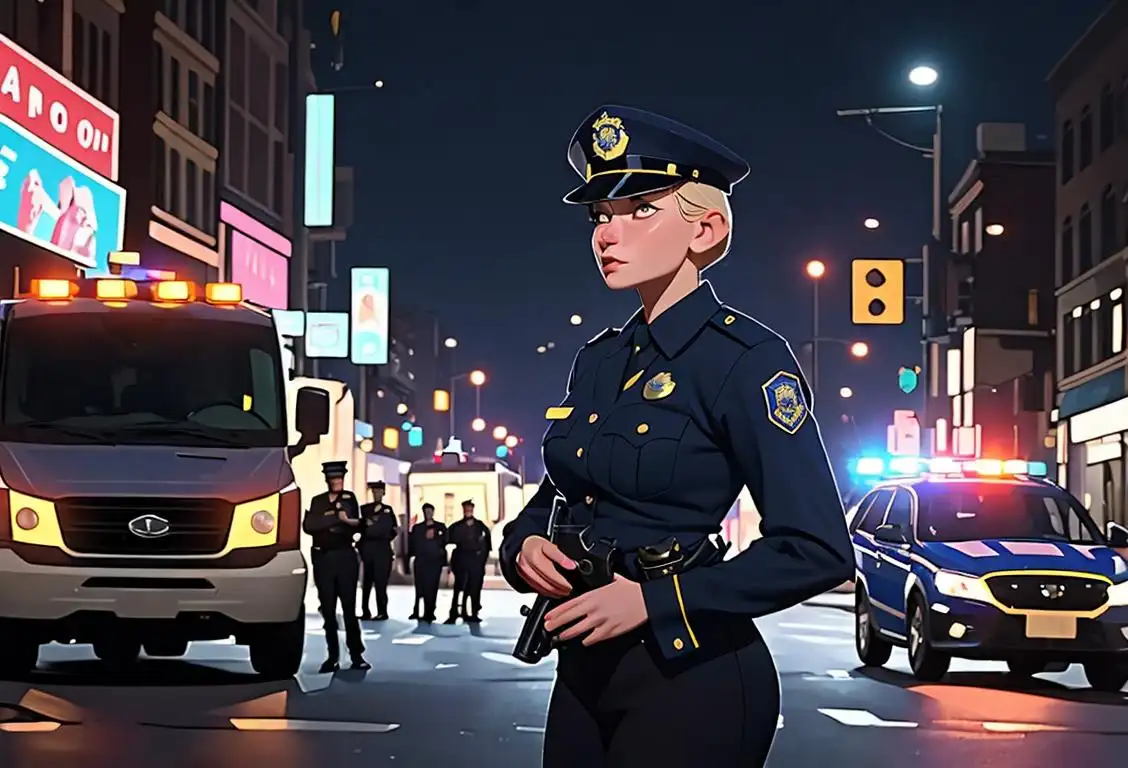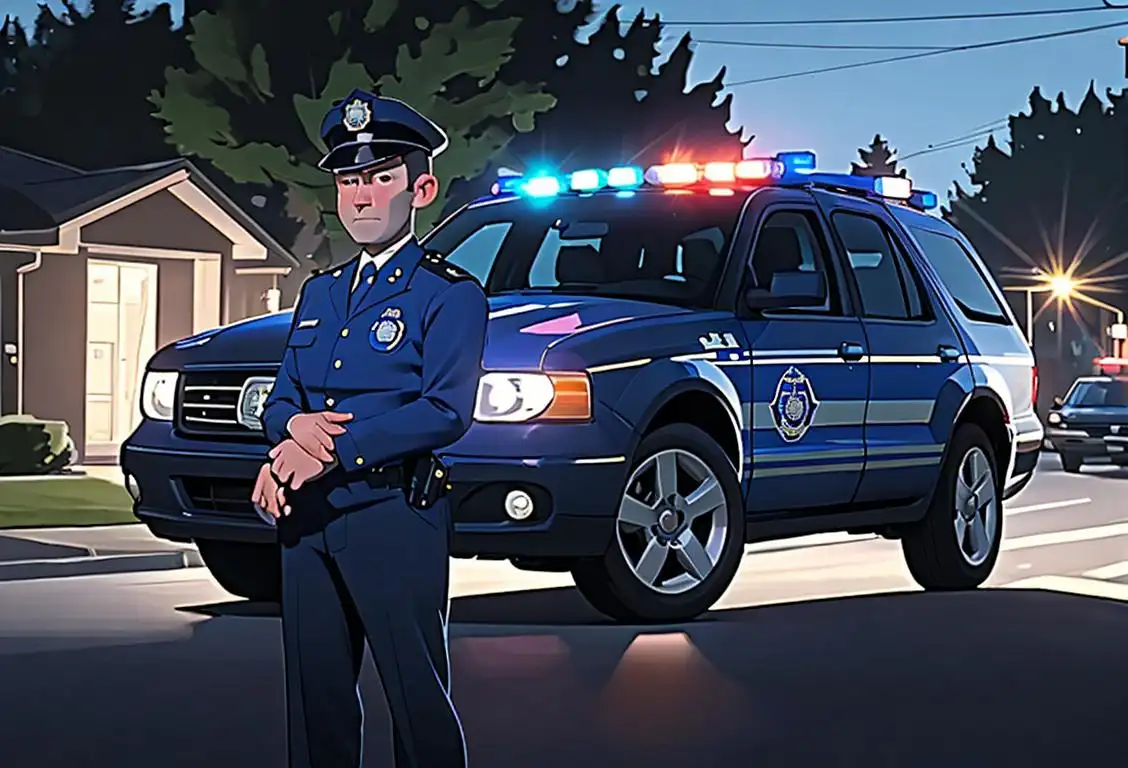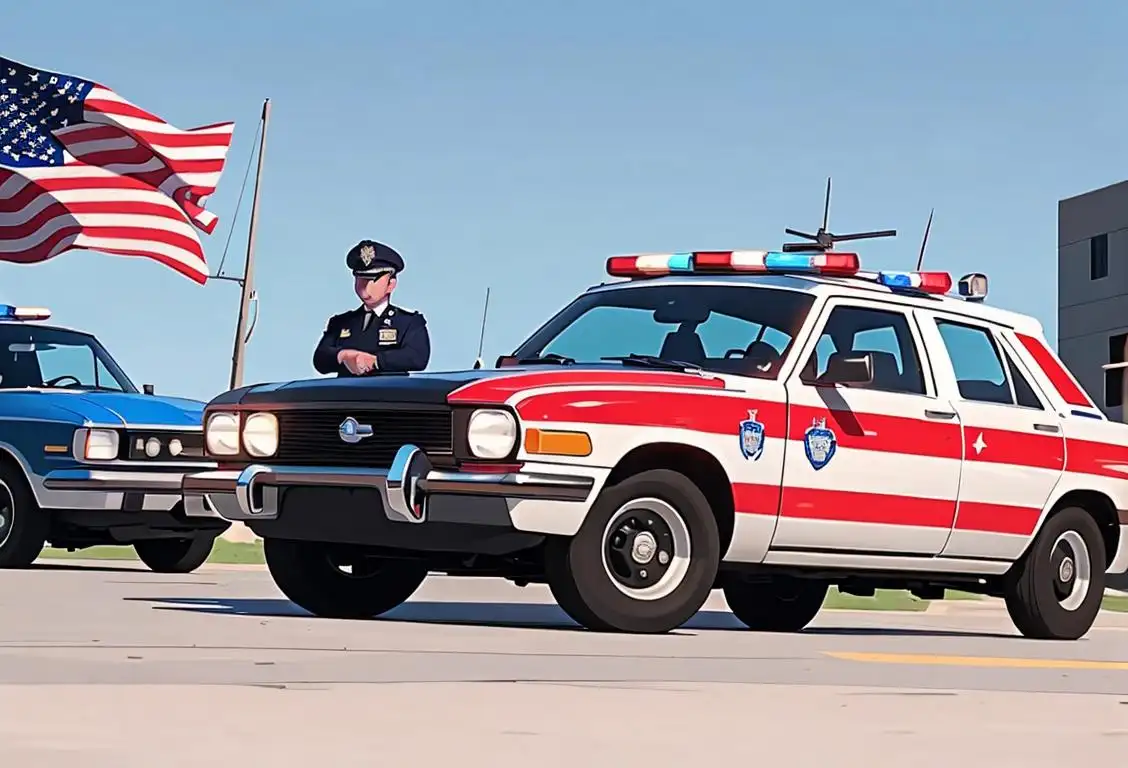National Law Enforcement Day

Put on your badge and dust off that uniform because we're about to embark on a journey into National Law Enforcement Day! This national day, celebrated with over-the-moon gusto and a hint of 'bad cop, good cop' repeals, garnered an internet storm of 8668 mentions in 2017. Our cyberspace magnifying glasses have detected the peak of this internet commotion on January 9, 2017. What a day to remember!
When is Law Enforcement Day?
It's national law enforcement day on the 9th January.
The Cybernetic History Of National Law Enforcement Day
Why would a day celebrating law enforcement create such an online ballyhoo you might ask? Well, that's quite simple, dear reader, law enforcement jobs are not for the faint-hearted. Officers dedicate their lives to preserving peace and maintaining order, often putting their lives at risk in the process. Hence, the creation of National Law Enforcement Day, a day to thank these brave men and women for their commitment.
Internet records show that the first flickerings of celebration started with humble threads in online communities. Yet, as the importance of acknowledging law enforcement grew, so did the online noise. Seemingly overnight, our metaphoric internet seismograph recorded a noticeable spike on January 9, 2017, when the whole internet seemed to stand still to rave tweet, post, and share their support for law enforcement officials.
Soon, the public, private and non-profit sectors joined the internet crowd in expressing appreciation. The aftermath was clear; National Law Enforcement Day had left its digital footprint forevermore. This day is now commemorated throughout the internet with poetic posts, heartfelt mentions, and monuments built in the form of hashtags to honor our law enforcement heroes.
So how to celebrate this blue-clad day? People have been innovative. A trend of preparing and delivering home-made baked goods to local precincts was a fond favourite. However, it's also seen as a day of refection, a day to think about the sacrifices and hard work that law enforcement personnel provide every day!
History behind the term 'Law Enforcement'
1667
The Creation of the First Modern Police Force
In 1667, King Louis XIV of France established the first modern police force known as 'Lieutenant General of Police' in Paris. This marked a significant step towards organized law enforcement in Europe. The primary role of this force was to maintain public order, prevent crime, and supervise the daily lives of Parisians. The Lieutenant General of Police was responsible for appointing a network of officers throughout the city.
1829
The Formation of the London Metropolitan Police
In 1829, Sir Robert Peel, the British Home Secretary, introduced the Metropolitan Police Act, leading to the formation of the London Metropolitan Police. The police force was commonly referred to as 'bobbies,' derived from Peel's first name. The establishment of the London Metropolitan Police acted as a model for police departments worldwide, implementing principles of crime prevention and public safety.
1845
The Term 'Law Enforcement' Emerges
The term 'law enforcement' made its first appearance in 1845 in the United States. It referred to the collective efforts of police and other legal authorities to maintain law and order, prevent crime, and enforce regulations. The term gained popularity as government agencies dedicated to upholding the law came into existence in various countries.
1901
Pioneering Modern Police Training
In 1901, the New York City Police Department established the first formal police academy in the United States. This marked a crucial step towards enhancing the professionalism and standardization of law enforcement agencies. Police academies focused on providing comprehensive training to officers, equipping them with the necessary skills to carry out their duties effectively and efficiently.
1920
Prohibition and the Rise of Federal Law Enforcement
The Prohibition era in the United States from 1920 to 1933 saw a surge in organized crime and illegal alcohol production. To combat the rampant criminal activities, the federal government established agencies such as the Bureau of Prohibition and the Bureau of Investigation (later known as the Federal Bureau of Investigation). This period witnessed the expansion of federal law enforcement agencies to address the challenges posed by organized crime and the illegal alcohol trade.
1960s
Civil Rights Movement and Community-Oriented Policing
During the civil rights movements of the 1960s, law enforcement faced significant challenges and underwent significant changes. The concept of community-oriented policing emerged, emphasizing collaboration, communication, and partnership between the police and the communities they serve. The goal was to address the root causes of crime and build trust and mutual respect between law enforcement and the public.
21st Century
Technological Advancements in Law Enforcement
With the advent of the 21st century, law enforcement agencies embraced technological advancements to enhance their capabilities. This included the widespread use of computer databases, surveillance systems, forensic technologies, and digital communication systems. These advancements have significantly impacted crime prevention, investigation techniques, and emergency response strategies, allowing law enforcement agencies to adapt to the evolving challenges of the modern age.
Did you know?
Did you know on National Law Enforcement Day 2017, some communities celebrated with a 'Doughnut with a Cop' initiative, promoting dialogue between citizens and law enforcement over the infamous law-enforcement favorite snack?Tagged
awareness fun celebration remembrance heroes law enforcementFirst identified
10th April 2015Most mentioned on
9th January 2017Total mentions
8668Other days
Law Enforcement Day
Coffee Coffee Day
Heroes Day
Thank A Police Officer Day
Police Day
Parents Day
Donor Day
Chloe Day
Farmers Day
Lauren Day








